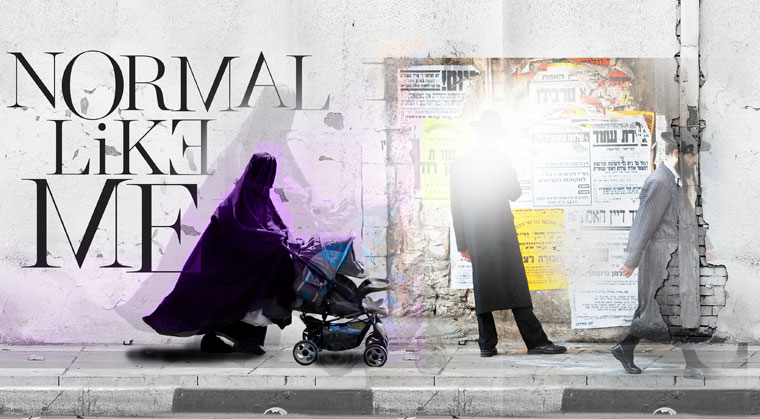Normal Like Me: Chapter 41


O
nly 150 shekels. In vouchers. That’s what the miserable chesed organization gave him.
Nosson Gross never forgot the humiliation of walking up and down Rechov Malchei Yisrael, wondering what he could do with those vouchers. At home it was hot and sticky and Esther was angry, and in the street an endless stream of loudspeakers mounted on cars announced sales of all types of Yom Tov goods, subsidized by tzedakah committees. Driven by desperation, Gross leaned toward the driver of one of those cars.
“Bachurchik,” he said, “how much do you take for a day’s work?”
“Each client is a different deal,” said the savvy young man at the wheel.
Nosson had a picture of Michoel in his pocket. He also had a felt-tip marker and a latent talent for copywriting. He bought a couple of poster boards and a roll of Scotch tape at the school supply store, dashed into the copy center, and minutes later, all of Geula heard about the disabled boy who was begging his parents to help him walk one day, but the parents could barely afford bread and milk.
That evening he pocketed 800 shekels after the driver took his share, and they arranged to meet again the next day.
Two years later, Gross, together with a friend, bought the legal rights to a nonprofit that had been inactive for a few years. The Registrar of Nonprofit Organizations made no particular difficulty about switching the board members to Nosson Gross and his friend. The name change from Chasdei Rochel to Yeshuos HaChesed also went through smoothly.
A starving young accountant charged them 1,500 shekels to file the whole business, on condition that they commit to using her services regularly. She and they filled out numerous forms with lengthy verbiage about the organization’s lofty activities: distribution of vouchers to the needy, support for needy families, kimcha d’Pischa, stipends for kollel yungeleit. Within six weeks, Nosson Gross had won tax-deductible status. Now he was in business.
He quickly learned which ads were worthwhile and which weeklies weren’t even worth the 8,000 shekels it cost for a full-page ad. At the end of every year, he prepared a list of the stipend recipients for the accountant. She was firm about that. “Get their signatures,” she said. “I don’t want to lose my license over such petty details.”
Nosson bought pens with blue ink, black ink, and red ink, and he sat up a whole night “getting” the signatures. One small problem came up when one grateful recipient by the name of Yonason Brodweit went on record as living at Rechov Eli HaKohein 14. The accountant’s intern, a bothersome young woman who couldn’t find any other job, called Mr. Gross, insisting there was no such building. “I know that street. After number 12 comes number 16. Number 14 hasn’t been built yet, so how could someone be living there?”
“I’ll ask Brodweit,” an embarrassed Nosson replied. A minute later he called back. “It’s Eli HaKohein 24,” he said, hoping the little nudnik wouldn’t run over there to look for the mythical Brodweit.
Toward the end of the year 2000, the Registrar of Nonprofits began demanding that all moneys be distributed by check, as required by law. “They want checks? Okay, we’ll start paying by check,” Nosson grunted. Yeshuos HaChesed issued checks to “Yonason Brodweit,” “Shmuel Klinger,” “Tzemach Levi,” and a slew of others — and all of them were cashed at the bank, after “Yonason,” “Shmuel,” and “Tzemach” had endorsed them in red, blue, and black ink, respectively.
(Excerpted from Mishpacha, Issue 707)
Oops! We could not locate your form.



